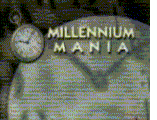The Year 2000 aka Millennium
 Friday, January 1, 2010 at 12:00AM
Friday, January 1, 2010 at 12:00AM The Year 2000
FutureCast: 1987
The Year 2000 problem will created a new business opportunity for new companies and firms to make millions. (Actual occurrance:1995-2000 a 600 billion dollar industry).All major mainframe applications need to be re-written to expand date fields from 2 digit dates for 4. The problem will become a HUGE opportunity for any new business whose sole purpose it would be to help companies re-write their millions of lines of code before the year 2000.
Category: Computers
You probably have heard quite a lot in the news lately, especially if you are a computer professional, about the so-called Year 2000 problem that will plague many computer systems at the turn of the century. Most of these systems are legacy based, meaning, primarily mainframe based, mostly Cobol (a computer language) programs that were originally written years ago, in fact some decades ago.
In short, these systems are in operation today in government and businesses such as banks and insurance companies and the IRS, and use a 2 digit year to designate a particular year (i.e. "97" as in "1997"). This was done to save space which historically was at a premium. And, the systems work just fine as long as any date comparisons or calculations only refer to dates in this century (20th). But when 2000 rolls around, "00" is looked upon as being before "97", and that will cause major problems. I won't go into the details, but suffice it to say, it will break these systems and give erroneous results. For more details, see related links below...
An Personal Historical Perspective
In 1987/88, I was working as a developer for AT&T's Sales Tracking System. The systems supporting this area were written in Model 204, a mainframe-based DBMS (Data Base Management System) and Cobol, the primary language for mainframes since the 1960's.
A lot of the computer programs I maintained relied on date comparisons, and performed date calculations such as From and To dates.
But, they all used a 2 digit date format, and while making changes and updates to these computer programs I made a mental discovery: these programs would "bomb" if any of them were still in operation past the year 2000. I pointed this out to my analyst and others I worked with and although most concurred, almost everyone thought that since it was almost 12 years until the turn of the century, it was really pretty much a moot point. Besides, "most of these systems will be gone or re-written by then and that would be the time to make any changes..."
Yeah right! Oh how wrong they were...

It's important to point out that at the time there was no mention of impending doom in the computer trade rags like ComputerWorld, (first mention of it was in 1993) and this only fueled my detractors lack of concern.
I told a fellow co-worker that this problem will become a HUGE opportunity for any new business whose sole purpose it would be to help companies re-write their millions of lines of code before the year 2000. We could make a lot of money and our services would become increasingly in demand as the millennium approached.
He was so convinced that a few years later he expressed a desire to go into business with me and start a new venture involving this problem. Unfortunately, my potential business partner had to relocate for personal reasons and our entrepreneurial efforts went unrealized.
But as history shows, I was right this time, and today we have a 600 billion dollar industry which has spawned many new companies that are raking in huge profits...and companies and government organizations are scrambling to deal with this problem at the last minute...
2000: Well with all the fixes the Y2K problem was solved and problems were few.
Other Year 2000 Links
Millenniumania! FutureCast's News about Y2k
CNN- Experts bemoan denial of '2000 bug' - Oct 13, 1996



